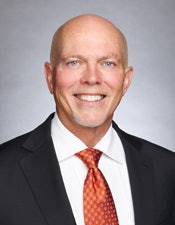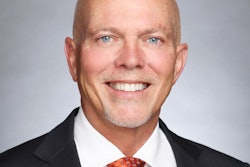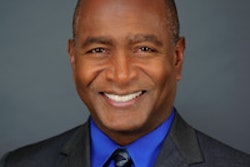
Aiming to increase access to care for pediatric patients, the dental service organization (DSO) Western Dental recently announced the launch of a pediatric dentistry brand, Western Dental Kids.
The DSO launched its first Western Dental Kids practice on August 8 in Modesto, CA, and another 22 Western practices will be rebranded before the end of the year. John Luther, DDS, Western's chief dental officer, discussed the organization's motivation behind the decision to focus on pediatric dentistry in an email interview with DrBicuspid.com.
 John Luther, DDS, is the chief dental officer for Western Dental.
John Luther, DDS, is the chief dental officer for Western Dental.The idea behind the creation and expansion of the Western Dental Kids practices was fueled by needing to improve access to care, Dr. Luther wrote.
"The creation and expansion of Western Dental Kids not only increases access to care for an underserved population but addresses major areas of need among children," he noted.
Dr. Luther cited the prevalence of tooth decay and his organization's commitment to working with California's dental Medicaid program, Denti-Cal, as other key factors.
"Tooth decay is the most common chronic childhood disease," he wrote. "Children frequently have poor oral health, and in California their oral health is substantially below national targets."
As an example, Dr. Luther noted that by third grade, tooth decay affects almost two-thirds of California children.
"While every major medical, dental, and public health organization recommends that children be seen by a dentist by age 1, only 1 in 10 children under age 2 who are enrolled in Denti-Cal have had a preventive dental visit, primarily due to lack of access to care," he reported.
“The creation and expansion of Western Dental Kids not only increases access to care for an underserved population but addresses major areas of need among children.”
Western Dental Kids practices will be staffed with doctors specializing in pediatric dentistry, board-eligible orthodontists, and dental team members experienced in working with children, according to the DSO.
Dr. Luther emphasized that getting children on a path to good oral health at a young age is crucial.
"Getting kids in very early allows the dentist and their team to provide guidance to the parent/caregiver concerning proper nutrition and home care, and the importance of regular check-ups," he wrote.
He added that there can be a long-lasting impact for good oral healthcare for young children.
"Keeping very young children cavity-free gets children on a path to good oral health that usually carries through to adulthood," Dr. Luther wrote.
He also considered the consequences of seeing children after tooth decay has begun.
"Conversely, children seen only after teeth are decayed may mean that treatment requires more advanced restorative care and treatment involving general anesthetic," Dr. Luther noted. "This may be less pleasant for the child and far more costly [for the caregiver]."



















